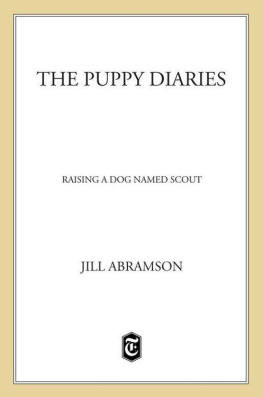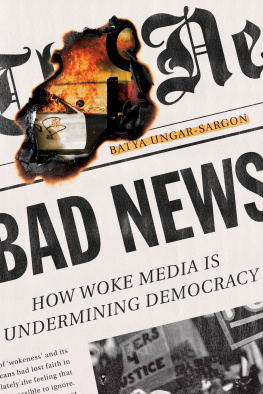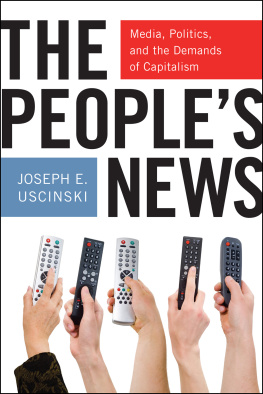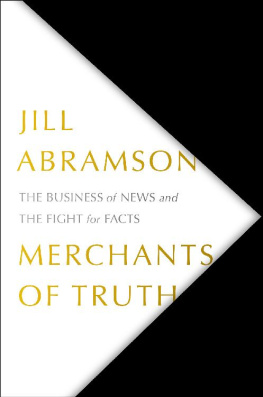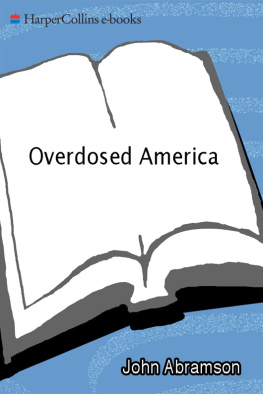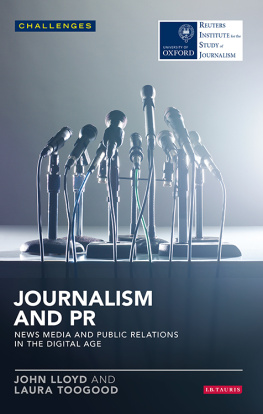Thank you for downloading this Simon & Schuster ebook.
Get a FREE ebook when you join our mailing list. Plus, get updates on new releases, deals, recommended reads, and more from Simon & Schuster. Click below to sign up and see terms and conditions.
CLICK HERE TO SIGN UP
Already a subscriber? Provide your email again so we can register this ebook and send you more of what you like to read. You will continue to receive exclusive offers in your inbox.
We hope you enjoyed reading this Simon & Schuster ebook.
Get a FREE ebook when you join our mailing list. Plus, get updates on new releases, deals, recommended reads, and more from Simon & Schuster. Click below to sign up and see terms and conditions.
CLICK HERE TO SIGN UP
Already a subscriber? Provide your email again so we can register this ebook and send you more of what you like to read. You will continue to receive exclusive offers in your inbox.
ALSO BY JILL ABRAMSON
The Puppy Diaries
Strange Justice: The Selling of Clarence Thomas (coauthored with Jane Mayer)
Where They Are Now

Simon & Schuster
1230 Avenue of the Americas
New York, NY 10020
www.SimonandSchuster.com
Copyright 2019 by Jill Abramson
All rights reserved, including the right to reproduce this book or portions thereof in any form whatsoever. For information, address Simon & Schuster Subsidiary Rights Department, 1230 Avenue of the Americas, New York, NY 10020.
First Simon & Schuster hardcover edition February 2019
SIMON & SCHUSTER and colophon are registered trademarks of Simon & Schuster, Inc.
For information about special discounts for bulk purchases, please contact Simon & Schuster Special Sales at 1-866-506-1949 or .
The Simon & Schuster Speakers Bureau can bring authors to your live event. For more information or to book an event, contact the Simon & Schuster Speakers Bureau at 1-866-248-3049 or visit our website at www.simonspeakers.com.
Jacket design by Jason Heuer
Library of Congress Cataloging-in-Publication Data is available.
ISBN 978-1-5011-2320-7
ISBN 978-1-5011-2322-1 (ebook)
In memory of my friend Danny Pearl, and the other great reporters who lost their lives digging for the truth.
PROLOGUE
The party had a distinct fin-de-sicle air. On a wintry night in early 2016, the battered lions of journalism gathered at the Newseum in Washington, D.C., for a party to toast the 100th anniversary of the Pulitzer Prizes. These editors and reporters had spent their careers at newspapers such as the New York Times , which had won 117 of the coveted awards, the most of any news organization. Scattered throughout the room were representatives of the Washington Post , which had won 47, the second-most. Their stories over the years had chronicled Watergate, the Pentagon Papers, war zones, terrorism, financial scandal, poverty, political corruption, civil rights, China, Russia, and on and on. The first rough draft of history, popularized by Phil Graham, scion of the family that owned the Post , had become a self-congratulatory clich, but for this body of journalisms most honored work, it was true.
Arthur Ochs Sulzberger Jr., the Times s publisher since 1992, took immense pride in the announcement of the Pulitzers each spring, just as his father had. The Times almost always had someone on the Pulitzer board that picked the winners. For nearly a decade, the papers emissary was Tom Friedman, the Times s influential foreign affairs columnist and a three-time prizewinner. After the board made its decisions, Friedman would call the publisher to leak the results the Friday before they were announced. Seldom did he have anything but good news. Almost every year the boyish-faced Sulzberger added at least one framed picture of a winner to the corridor below his office. Most of the other guests knew that Sulzberger, 64, hoped to hand over the reins to his son, Arthur Gregg, as Arthurs father, Punch Sulzberger, had done for him.
Absent from the crowd of luminaries was the Washington Post s Donald Graham, the self-effacing, beloved company chairman who had executed a changing of the guard three years before. Despairing that the papers quality couldnt survive deep staff cuts and vanishing advertising revenue, he sold the newspaper his family had owned since 1933 to a tech billionaire, Amazons Jeff Bezos. The Post s sleek new offices were no longer festooned with the famous front page Nixon Resigns from Watergate days. They were dominated by flat-screens displaying real-time traffic statistics on how many readers were looking at each story. Prominent was a Bezos mantra, in blue and white: Whats dangerous is not to evolve.
Also missing was the younger guard, the founders of the digital media companies that had used Facebook and Google to build giant audiences of younger readers and viewers. Though very few had won Pulitzers for their news coverage, companies such as BuzzFeed and Vice Media were giving the old guard serious competitionand heartburn.
The party celebrated journalisms golden age, but the celebrants were living through journalisms Age of Anxiety. All of them knew a colleague who had taken a buyout or been laid off. The newspaper industry had shed $1.3 billion worth of editors and reporters jobs in the past decade, some 60 percent of its workforce since 2000. Some of the newspapers that won the prizes had gone out of businessmore than 300 altogetheror were shadows of what theyd been. There had been repeated assurances that more could be done with less. Even the newcomers, despite their bloated valuations, were hard-pressed to show profits.
Global news-gathering, meanwhile, remained monstrously expensive. The kind of investigative stories that won Pulitzers took months to report, took still more time to edit and make legally bullet-proof, and were ever more costly. Editors had to safeguard accuracy and fairness: if a big story broke and they needed to scramble helicopters or flood the zone with reporters, they couldnt agonize over budgets. What was being threatened were the very qualities these prizes were meant to recognize. What was at risk was far bigger than just one industryit was truth and freedom in a democratic society, an informed citizenry, and news sources that were above politics in their reporting.
All the editors there were mustering their troops to cover the presidential election, never suspecting that voters would bring to power a man who cast them as agents of evil, the fake news media. At Donald Trumps rallies, his supporters jeered the campaign reporters behind their ropes. Trumps penchant for serial lying would challenge all the old rules of so-called objectivity and force journalists into the uncomfortable role of seeming to be, at least in the eyes of many conservative Americans, combatants against a sitting president.
Everything these journalists cared about was under attack. As they sipped wine in a cavernous museum devoted to their professions glorious past, the laurels that mattered were now quantitative: clicks and likes and tweets and page views and time of engagement.
Beyond the political climate, the traditional news media itself had played a role in the publics eroding trust. Self-inflicted scandals had damaged their credibility, including those involving Janet Cooke at the Post and Jayson Blair at the Times , the run-up to the Iraq War, and, soon, controversies over coverage of Hillary Clintons emails, hacked messages from the computers of Democratic Party officials, as well as the failure to recognize Trumps electability. Most Americans now got their news on their smartphones, on social media, from a jumble of sources, such as family members they trusted far more, or from alt-right websites, increasingly polarized cable TV news shows, Russian bots, and branded content from corporations.
Next page

